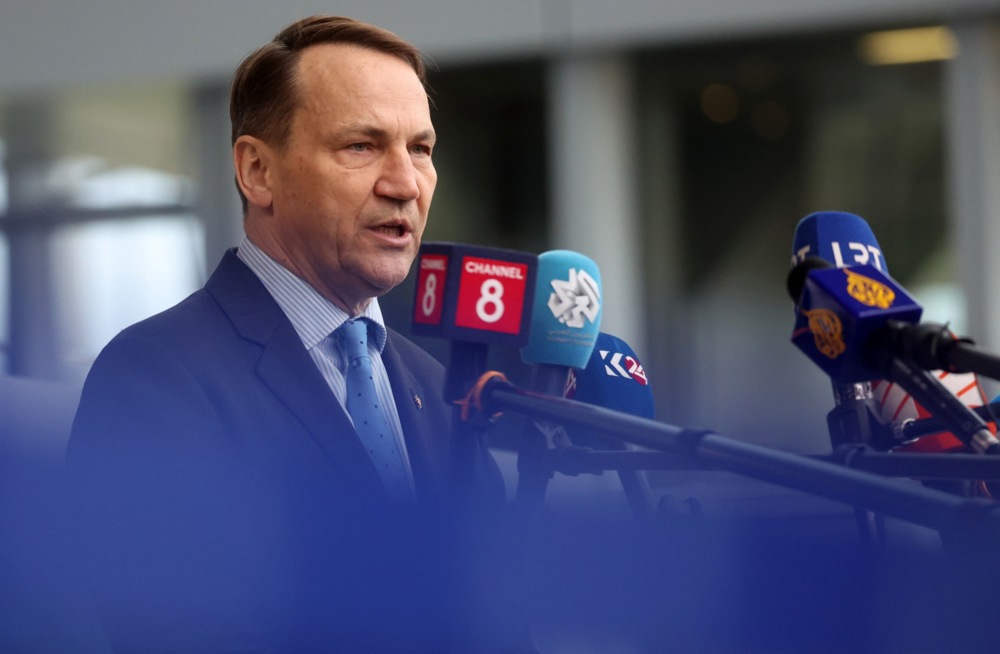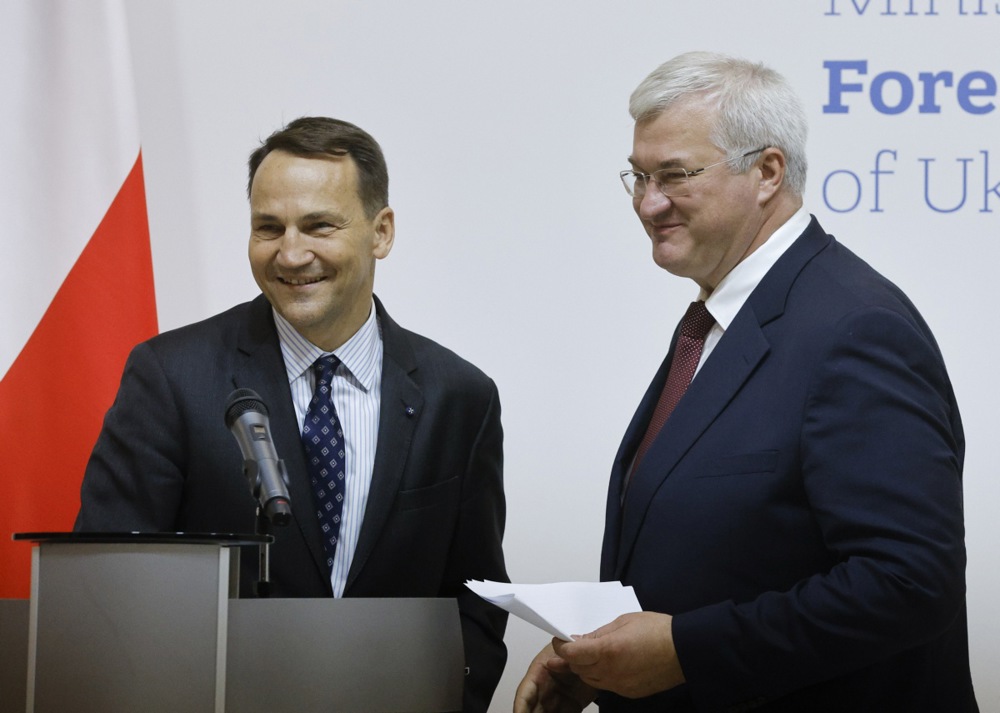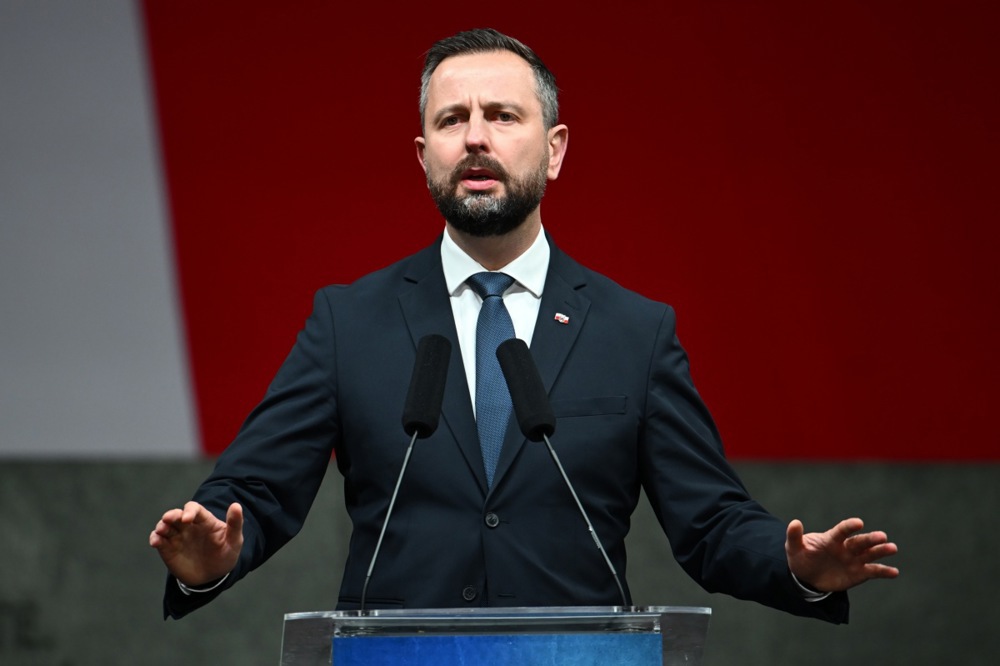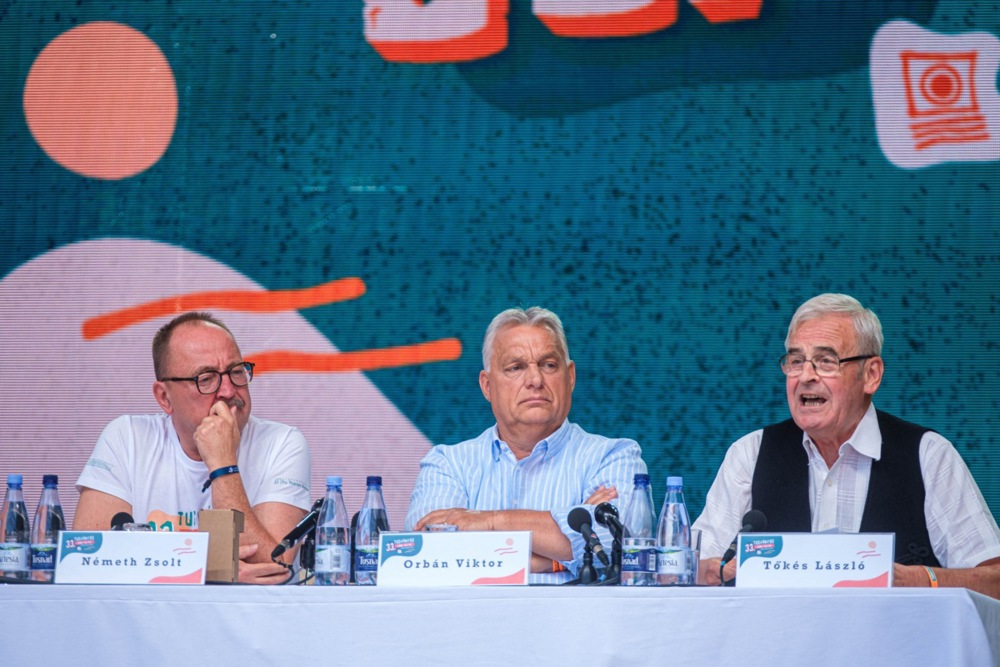Ukraine and its Tatar minority have reacted angrily to Polish foreign minister Radosław Sikorski’s remarks at the Yalta European Strategy Forum after he said that Crimea, the Ukrainian territory occupied and annexed by Russia since the invasion of 2014, could be placed under a UN mandate pending a referendum on its future status.
Speaking at the event on September 16 in Kyiv, Sikorski later confirmed his remarks, which were leaked from a conference discussion that was supposed to be off the record.
The minister was reported by agency Interfax as having said: “Crimea is symbolically important for Russia, and particularly for Putin, but strategically crucial for Ukraine. So I don’t see how they can reach a deal without Crimea being demilitarised.”
It was the manner in which he said that might happen that caused uproar in the Ukrainian media, leading to a reaction from the Ukrainian authorities and the Tatar minority.
Sikorski was reported as having said: “We could put it under a UN mandate with a mission to prepare a fair referendum after having verified who are the rightful inhabitants and all that…. And we could kick it down the road for 20 years.”
He also said it had been a mistake for the West to tell Ukraine not to fight in Crimea back in 2014. “If the Ukrainians fought in Crimea, even symbolically, Putin might not have dared to do Donbas [occupy that region of Ukraine]”
The Ukrainian foreign ministry on September 19 issued a statement calling the proposals on the future status of Crimea “unacceptable” and that “the Kremlin’s appetites must not be satisfied at the expense of Ukraine’s interests and international law”. It did not name Sikorski as being behind the idea.
“The territorial integrity of Ukraine has never been, and will never be, a subject for discussion or compromise. “Crimea is Ukraine. Full stop”, the ministry said
“We count on further strong support from our partners to force Russia to return to respect for international law and … to withdraw its troops and military equipment from the entire sovereign territory of Ukraine,” it added.
The Mejlis, the representative body of the Tatars who are a significant Muslim and pro-Ukrainian minority in Crimea, went further. The group issued a statement criticising Sikorski by name, saying that his “unacceptable and cynical” proposal did “not correspond to the national interests of Ukraine, nor to the rights and interests of the indigenous Crimean Tatar population of Ukraine”.
On September 20, Sikorski clarified his remarks with the Polish Press Agency (PAP) and said they should be seen in the context of a “hypothetical discussion” during one of the panels of the conference. He added that he felt it was “unfair” for his comments to have been leaked from an off-the-record discussion.
“There was a hypothetical discussion off the record among experts at the conference, in which we considered how to implement [Ukraine] President [Volodymyr] Zelensky’s own proposals on how to regain Crimea. He was talking about diplomatic measures,” said Sikorski.
He also stressed that Poland continued to support the territorial integrity of Ukraine, repeating what he had said earlier this year after Polish President Andrzej Duda speculated that Ukraine may never recover Crimea from the Russians.
Poland has been one of Ukraine’s closest allies since Russia launched its full-scale invasion of Ukraine in 2022, providing military equipment, humanitarian aid and diplomatic support.
Since 2023, though, relations between the two countries have deteriorated over Ukrainian grain exports and what Poland said was Ukrainian lack of willingness to address the issue of the Second World War massacres in Volhynia in which Ukrainian nationalists murdered more than 100,000 Poles.





